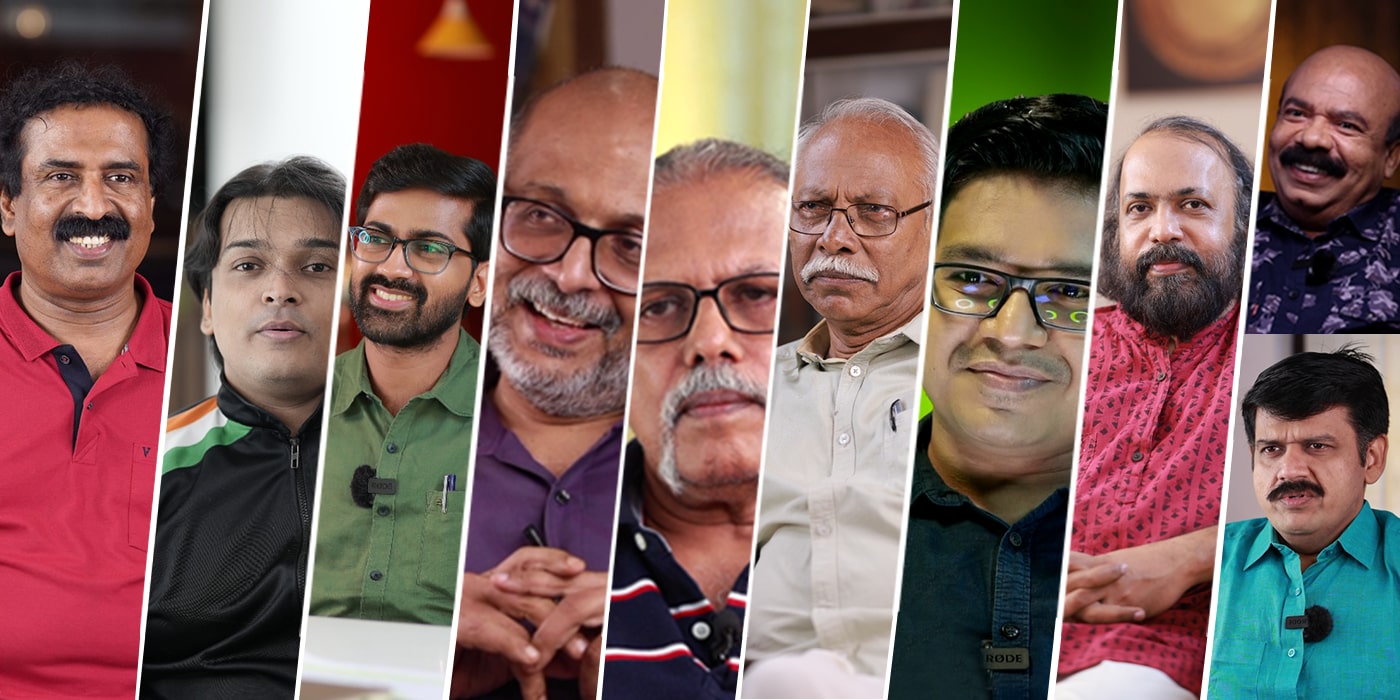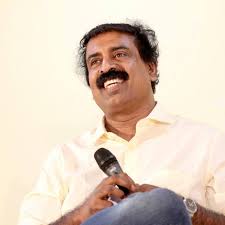

Ravichandran C is an atheist, independent thinker, and science advocate from Kerala. He has written several Malayalam books on topics such as atheism, science, and faith. Ravichandran was an English teacher at University College, Thiruvananthapuram, and currently teaches at Ezhukon Government Polytechnic College, Kottarakkara. He is known for conducting debates on subjects like science, God, atheism, faith, and astrology. Despite being associated with some views politically aligned with the Sangh Parivar, Ravichandran has actively opposed Hindutva ideology and engaged in debates with its proponents.
Chothiyam Sheriyalla - Ravi Chandran C: "Opposition to Love" - Episode 01 - Question Incorrect In Episode 01 of Chothiyam Sheriyalla, Ravi Chandran C explores the concept of opposition to love. He delves into the reasons behind why people might reject or oppose love, examining societal, cultural, and individual factors that contribute to this resistance. The episode provides a thoughtful analysis of the complexities and challenges of love in today's world.
"Why Call Religion a Virus?" - Episode 02 - Question Incorrect In Episode 02 of Chothiyam Sheriyalla, Ravi Chandran C discusses the provocative statement of calling religion a "virus." He explores the reasons behind this controversial view, examining the role of religion in society and its impact on individuals and communities. The episode critically reflects on how religion can sometimes act like a virus, spreading influence and shaping behaviors in both positive and negative ways.
"Will Ravi Chandran C Lend 100 Rupees?" - Episode 03 In Episode 03 of Chothiyam Sheriyalla, Ravi Chandran C humorously addresses the question of whether he would lend 100 rupees. The episode dives into discussions about lending money, trust, and the complexities of financial relationships, all while exploring deeper social and personal perspectives in a lighthearted manner.
"Essence LITMUS - The Great Convention of Atheists" In Episode 04 of Chothiyam Sheriyalla, the discussion focuses on the essence of atheism, exploring the gathering of prominent atheists and their ideologies. The episode delves into philosophical debates, questioning the concept of divinity and the beliefs that challenge conventional religious perspectives. It presents a thought-provoking dialogue on faith, reason, and the place of atheism in contemporary society.
"Even If Muslims Decide to Change, Those Within the Religion Won't Accept" In Episode 05 of Chothiyam Sheriyalla, Ravichandran C. raises a critical point about religious conversion within Islam. He discusses how, even if individuals within the Muslim community decide to change their beliefs, they often face resistance from those within the religion. This episode touches upon the complexities of religious identity, personal choice, and the societal pressures that influence such decisions. It sparks a conversation on freedom of belief and the challenges of leaving one's faith behind.
"Can One Believe in Ayurveda?" In Episode 06 of Chothiyam Sheriyalla, Ravichandran C. explores the question of whether it is possible to believe in Ayurveda. The episode delves into the traditional healing system's relevance, effectiveness, and how it is perceived in contemporary society. Ravichandran offers a thought-provoking discussion on Ayurveda's place in modern healthcare and its philosophical roots, inviting viewers to reflect on its value and role in their lives.
"Fear of Communism and Islam" In Episode 07 of Chothiyam Sheriyalla, Ravichandran C. addresses the topic of fearing communism and Islam. He explores the societal concerns surrounding these ideologies and religions, offering insights into the reasons behind such fears. This episode encourages viewers to critically examine their perceptions and challenges the stereotypes associated with communism and Islam in the context of modern society.
"What Happens When Communists Visit Temples?" In Episode 08 of Chothiyam Sheriyalla, Ravichandran C. discusses the intriguing scenario of communists visiting temples. He delves into the societal and political implications of such actions, questioning the contradictions and the changing dynamics of ideology. The episode explores the intersection of politics, religion, and personal beliefs, shedding light on the evolving perceptions of communism and its relationship with traditional practices like temple visits.